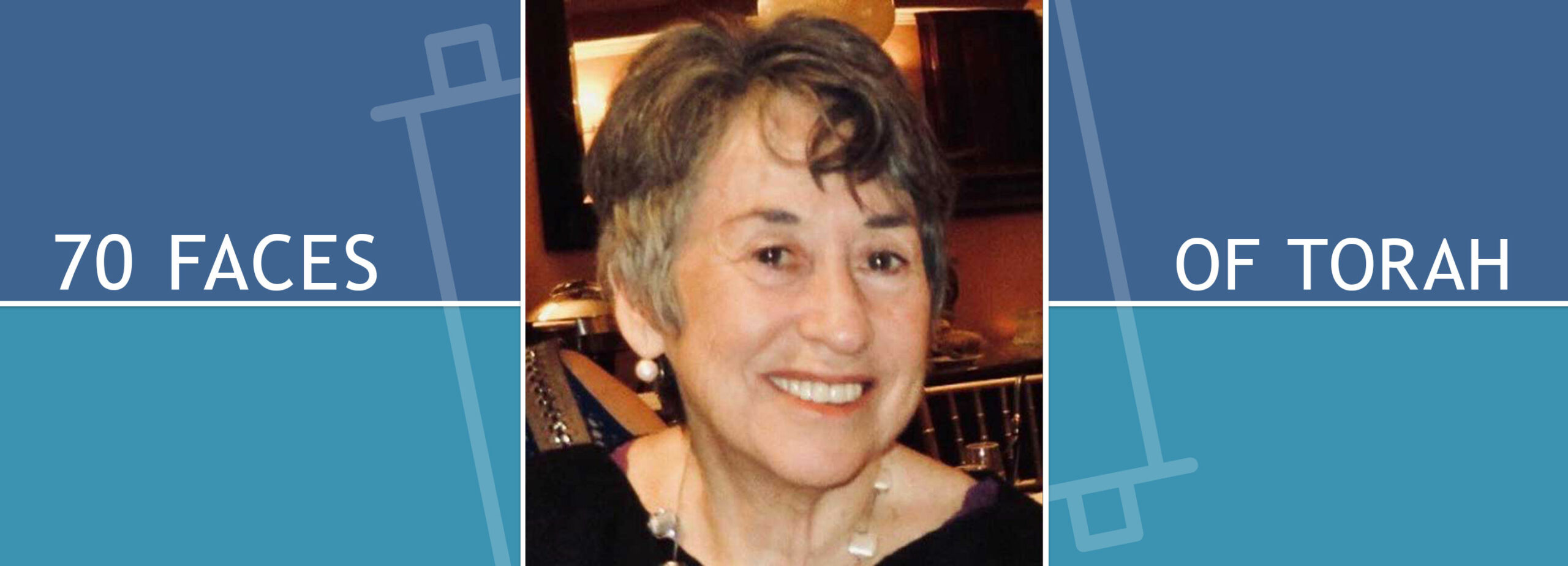Genesis An Appreciation at Our Matriarch’s Burial Place

Parashat Chayei Sarah Genesis 23:1-25:18
When I read the opening verses of Chayei Sarah, my eyes tear up. With all she has experienced throughout her long life, Sarah’s death is recorded in two sentences, a mere twenty-five Hebrew words:
Sarah’s lifetime, the span of Sarah’s life, came to one hundred and twenty-seven years. Sarah died in Kiryat-Arba—now Hevron in the land of Canaan; and Abraham proceeded to mourn for Sarah and to bewail her. (Genesis 23:1-2)
Why the redundancies—her lifetime, the span of her life and finally her age? Perhaps it is intended to slow us down and invite us to actually consider her life: How did Sarah use those 127 years and what might it have felt like to her? Hers was a life of adventure, dedication, service, and perseverance and in some ways a lonely life with, perhaps, a sense that she was more commodity than human.
The command, “lekh l’kha” is issued to an individual male. Only Abraham is called by God to go to a faraway land that God will show him. Many midrashim justify his selection: from childhood, he was already a monotheist who toppled idols in his father’s store and tried to convince people of his revolutionary theology.
But what about Sarah? Did she join him because she wanted to spend her years with a man she desired; because she had a sense of adventure; or, as some of the rabbis claim, because she, too, was devoted to spreading the word about the one invisible God? Whatever her motivations, by leaving home alongside him, she gave up what was familiar and grounding—I believe this was the beginning of her loneliness.
An obvious part of that loneliness is Sarah’s childlessness. Infertility is an intimate matter that is also visible to everyone. It set her apart from the other women even if there were other roles that she could claim. We can imagine that her personal pain was tinged by angst and envy. The last segment of this parashah chronicles the additional children born to Abraham after Sarah’s death and reminds us of the pain she carried with her in her quest to birth an heir for Abraham.
Another source of her loneliness is having a husband who—when he’s not conversing with God—is off fighting wars, defending cities, dealing with his family’s kin, negotiating real estate deals and other covenants, as well as preserving his wealth. Robert Alter, in his translation of the Tanach, points out that the first verbal exchange we hear between Avraham and Sarah is, in his words, a “domestic squabble” about Hagar. Twice Abraham responds to Sarah’s question—what to do with Hagar—with a terse equivalent of, “Whatever you want, dear,” as if Sarah’s concerns around inheritance, birthright, and her status as the first wife, aren’t worthy of discussion.
There are also times when Abraham uses Sarah by asking her to lie: to tell Pharaoh, and years later Avimelech, that she is his sister, not his wife. Because of her great beauty—enough to light up the whole land according to some commentators—Abraham feared that these powerful men were liable to kill him in order to gain access to her. The calculation was that the likely death of Abraham would carry more weight than the likely sexual victimization of Sarah; Rambam even claims that Abraham’s actions caused the Israelites’ enslavement in Egypt!
And then, of course there is the shocking episode of Abraham’s secret journey up the mountain to sacrifice Isaac, the couple’s longed-for heir. Everyone knew that Isaac was the centerpiece of Sarah’s life. And although her son was saved, the event must have felt like a betrayal to Sarah. The tradition tells us that hearing the sound of the shofar that was blown at that far-away place shocked Sarah, for she thought it meant her son was dead: the short staccato notes blown on Rosh HaShanah and Yom Kippur echo the sounds of Sarah’s tears.
Sarah’s life, like most people’s, was complex, and her personality was filled with contradictions: Assertive and submissive; young and beautiful; old and withered; compassionate and demanding. Her determination to help Abraham fulfill his divine purpose animated her throughout her 127 years. This very determination played in my mind over and over last week, as I took part in the Hebrew College/Tamid study trip to the American South. This three-day trip served to help participants better understand the Civil Rights movement—its context and history and Jews’ role in it. To say it taught me a lot is an understatement.
We were privileged to attend the Ebenezer Baptist Church on the first Sunday after Election Day, led by Reverend/Senator Raphael Warnock. Acknowledging the pain and fear the community was feeling, he told us to stand up, look at each other and say, “We’re gonna be alright” over and over and over again. As our voices grew louder, our backs became straighter and our belief that we would find a way forward grew resolute.
In Birmingham we met with 91-year-old Bishop Calvin Woods, who has served the movement since his childhood and was with Martin Luther King the day before he was murdered. His deeply embodied talk was in equal measure story-telling, singing/praying alone and together, and preaching. One of his themes was shared by many other people we met: We might know when we want something, but God might have another timeline and we have to be guided by that. They were not advocating for passivity but rather recognizing the limits of human volition.
Resilience, grit, tenacity characterize both Bishop Woods and Sarah, our shared matriarch. Recognizing that we don’t control the timeline might be the central message from Sarah’s long life. I imagine myself at her burial site saying:
With curiosity and courage, you undertook a journey with an unclear route and without anyone to show you the way. You valued the new understanding of God that you and Abraham shared, and your goal was to spread this idea far and wide.
To accomplish this, you dealt with many obstacles and remained with Abraham so as to ensure that Isaac would be his heir. And while the final period with Isaac and Abraham was difficult and you did not live to see Isaac and his sons continue your work, your efforts have borne fruit that influences us, even today.
Susan Shevitz, EdD, is a member of the Hebrew College Board of Trustees and a former adjunct instructor in the Rabbinical School. She is also a savta (grandmother) to four wonderful children.
Meet students and faculty at our online fall open houses, Ta Sh’ma (Come & Hear) on December 8. Learn more and register.
Explore Graduate Programs Tamid Adult Learning Classes Support Our Work


